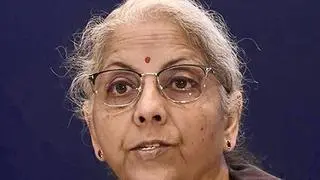Prime Minister Narendra Modi today left for home after concluding his 10-day three-nation tour during which he attended the East Asia and ASEAN-India summits in Myanmar, the G-20 summit in Australia and held bilaterals with his Australian and Fijian counterparts.
Modi, the first Indian premier to visit the Pacific country after Indira Gandhi who had come here in 1981, left Fiji’s capital Suva on a special Indian Air Force plane.
Lines of credit
He held talks with his Fijian counterpart Frank Bainimarama and also announced a slew of lines of credit and development aid totalling $80 million for the country.
Modi also announced a $one million Special Adaptation Fund for the Pacific nations and a proposal to develop Pan Pacific Islands Project for tele-medicine and tele-education.
He also addressed Fijian Parliament, the first by a foreign leader, after parliamentary elections, during which he said that India was prepared to build a ‘Digital Fiji’.
Noting the inconvenience in travel due to Visa issues, Modi announced visa on arrival facility for all the 14 Pacific Island countries and hoped that it will facilitate exchanges and promote better understanding between the peoples.
Framework for security coooperation
During his four-city tour in Australia, Modi and his counterpart Tony Abbott agreed on a landmark framework for security cooperation across the spectrum in defence, cyber and maritime security and combating terrorism, including the threats posed by foreign fighters joining extremists groups.
Modi, the first prime minister to visit Australia in 28 years, also addressed the Australian Parliament.
Free trade pact
The two countries also decided to conclude a long-pending free trade pact by the end of next year and an “early closure” of the civilian nuclear deal that will facilitate uranium imports to India.
Prior to arriving in Australia, Modi attended the ASEAN-India summit and the East Asia Summit in Myanmar.
At the East Asia summit in Myanmar capital Nay Pyi Taw, Modi asserted that the world community must reject any linkage between religion and terrorism while formulating a “genuinely international” partnership in the fight against all forms of terror acts.
India-ASEAN ties
On India-ASEAN relationship, Modi said there were “no irritants” in their ties and they can be “great” partners.
He said there will be “major improvement” in India’s trade policy and environment and proposed a special facility for speedy implementation of connectivity projects with the 10-nation ASEAN bloc.
On the sidelines of the summits, Modi met Chinese Premier Li Keqiang, Malaysian counterpart Najib Razak, Russian Premier Dmitry Medvedev, and Thai counterpart Gen Prayut Chan-o-cha.







Comments
Comments have to be in English, and in full sentences. They cannot be abusive or personal. Please abide by our community guidelines for posting your comments.
We have migrated to a new commenting platform. If you are already a registered user of TheHindu Businessline and logged in, you may continue to engage with our articles. If you do not have an account please register and login to post comments. Users can access their older comments by logging into their accounts on Vuukle.